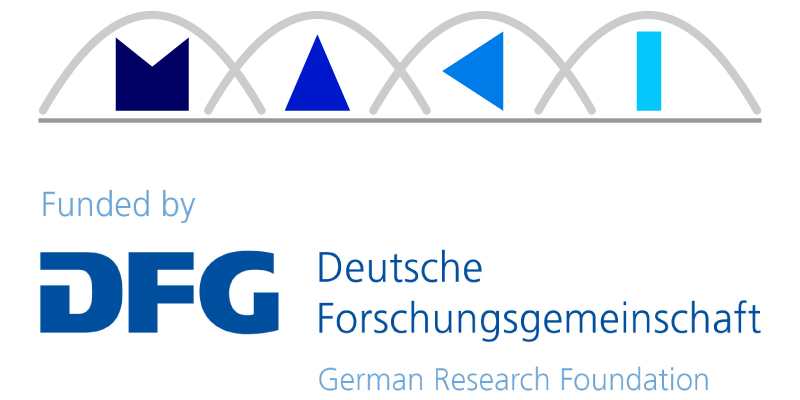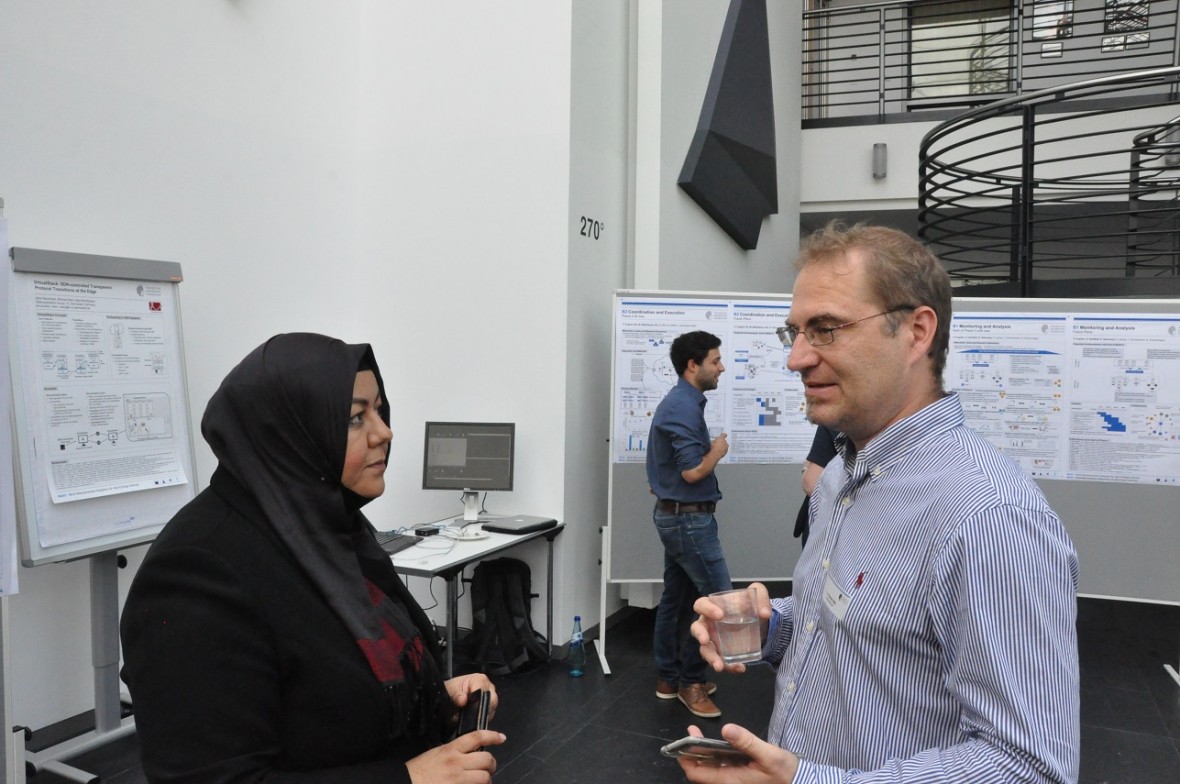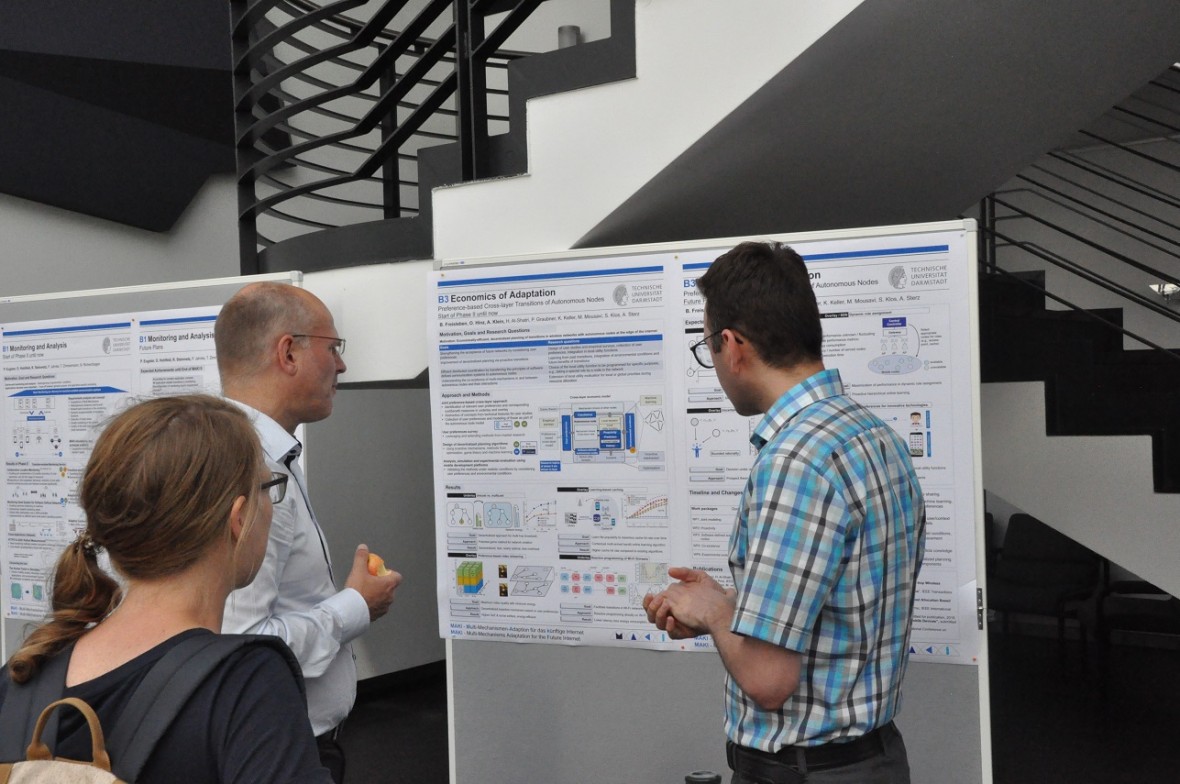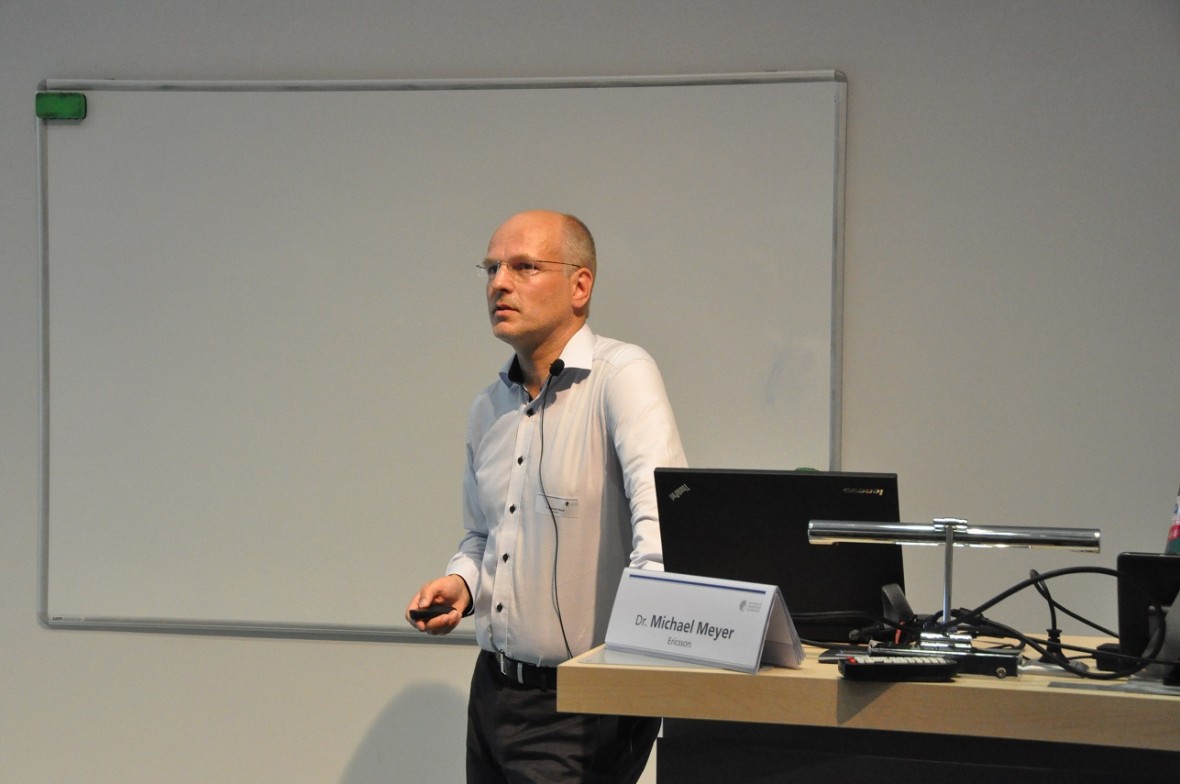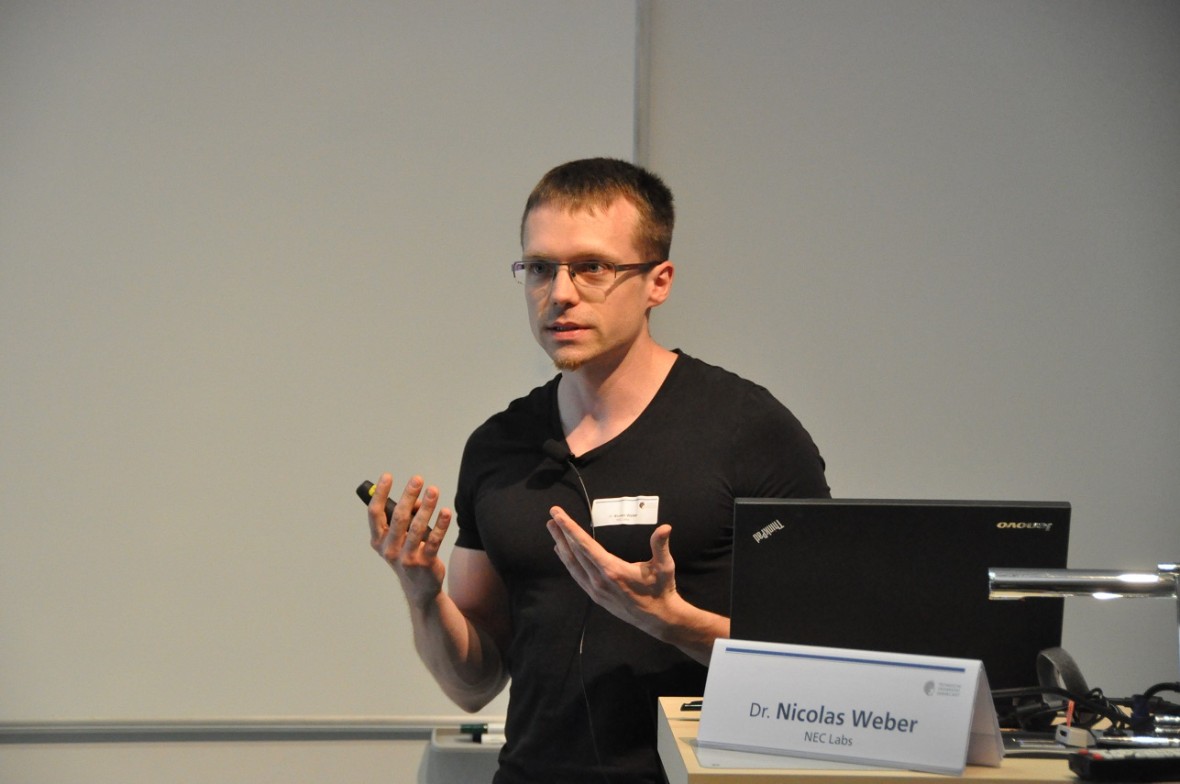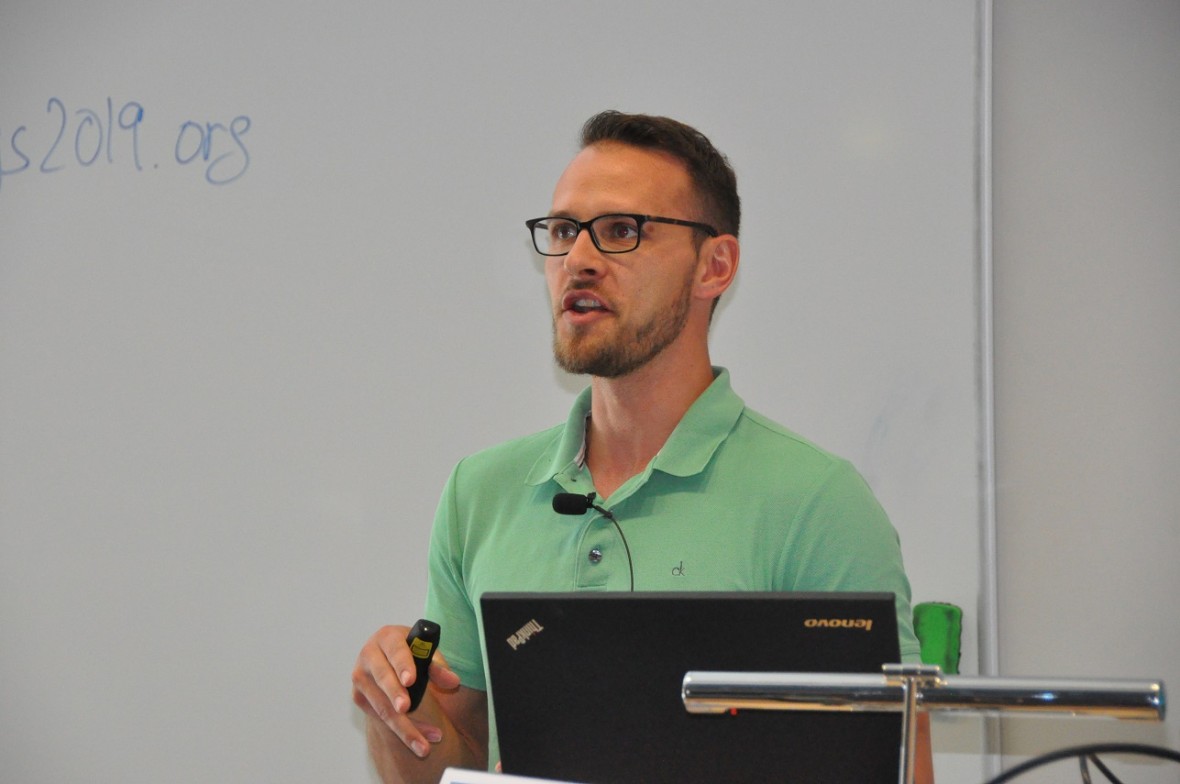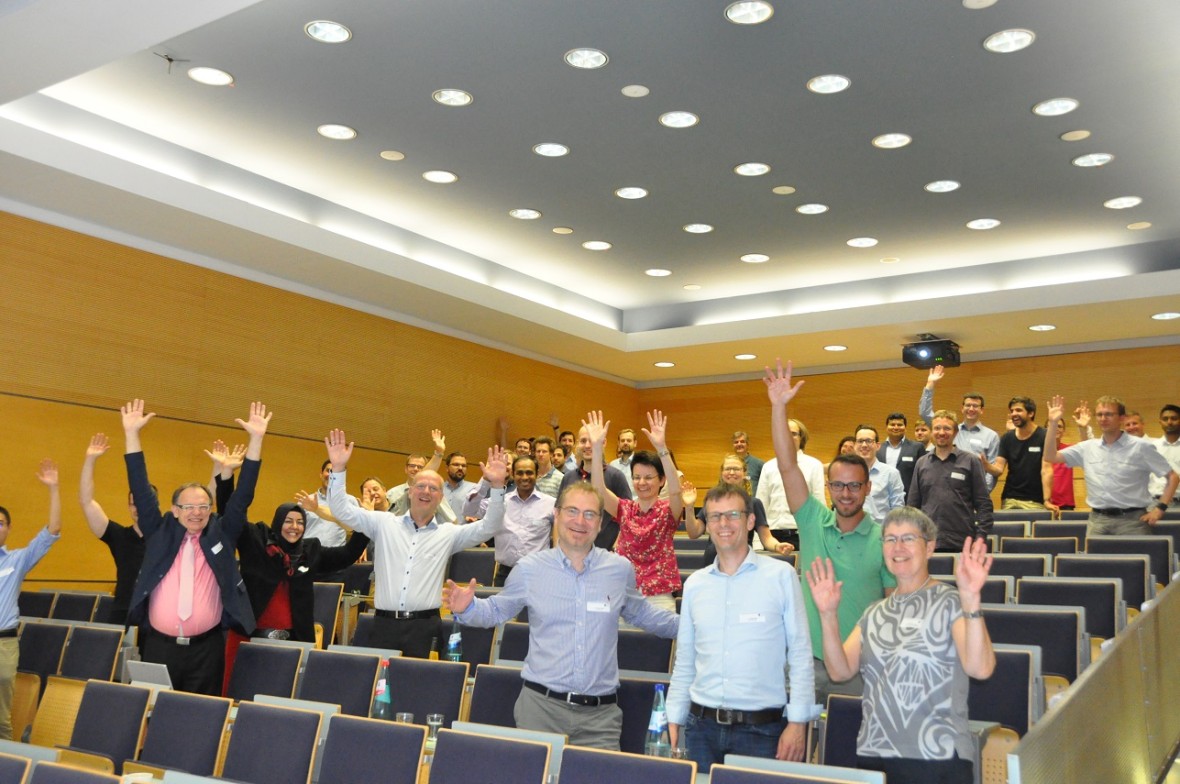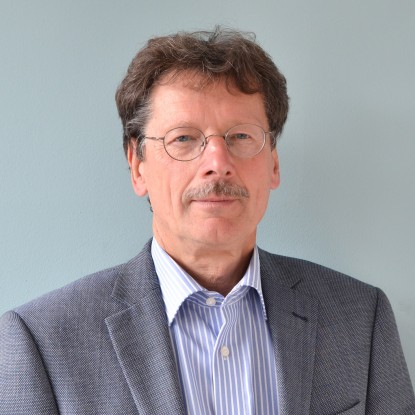Date: Thursday, June 21st 2018
Location: Fraunhofer-Institut für Graphische Datenverarbeitung, Fraunhoferstraße 5, 64283 Darmstadt
Description:
Since 2013, the German Research Foundation DFG is funding the Collaborative Research Centre 1053 MAKI – Multi-Mechanisms Adaptation for the Future Internet. MAKI is one of DFG’s largest collaborative research activities in computer science, with more than 19M€ funding approved to date. Over sixty PIs, Postdocs and doctoral researchers participate, representing fourteen research groups from Technische Universität Darmstadt plus labs from Aachen, Frankfurt, Mannheim and Marburg. A steady stream of short and long-term international visitors assures the influence of experts from across the world.
The overarching goal of MAKI is to help to make the Internet, its applications and platforms more adaptive and flexible – most notably at runtime. While many activities of the first phase emphasized better support for mobile applications under changing conditions (user mobility, load fluctuations, etc.), a good deal of the researchers of the current phase exploit the ‘softwarization’ of core and wireless networks in order to allow for large scale adaptation. A category of adaptations denoted as ‘transitions’ is of key importance in MAKI. Transitions replace a ‘mechanism’ by another one of equivalent functionality at runtime, where ‘mechanism’ may denote a protocol, protocol function, strategy, topology, etc.
The workshop brought top industrial researchers and developers together, working in areas related to the MAKI theme. The key results of MAKI were presented, research ideas exchanged and an industrial view on next-generation networks was provided. The workshop addressed the following four topics with respect to large scale adaptability and transitions:
1. in-network processing / edge computing,
2. next-generation wireless communications,
3. advanced network protocols, and
4. machine learning / big data analytics in future communication systems.
The ultimate goal was to establish connections and future collaborations between MAKI and the relevant industry partners. More than 70 participants attended the workshop, including 12 participants from industry partners. The one-day workshop comprised five talks given by invited industry experts, a MAKI overview presentation and poster presentations of MAKI results and ongoing project. There were ample opportunities for lively discussions and open exchange during the day.
Agenda
| 08:45 h | Registration and welcome of the workshop |
| 09:30h |
Introduction of MAKI: Prof. Dr. Max Mühlhäuser Scope of the Workshop: Dr. Lin Wang |
| 10:00h | Talk: Dr. Volker Hilt (Nokia Bell Labs) |
| 10:40h | One Minute Madness with the project areas A, B, and C of SFB MAKI |
| 11:10h | Break with posters presenting all projects of SFB MAKI |
| 11:50h | Talk: Dr. Michael Meyer (Ericsson) |
| 12:30h | Lunch |
| 13:30h | Talk: Dr. Nicolas Weber (NEC Labs) |
| 14:10h | Break with posters presenting all projects of SFB MAKI |
| 15:00h | Talk: Dr. Thorsten Wild (Nokia Bell Labs) |
| 15:40h | Talk: Daniel Kopp (DE-CIX) |
| 16:20 | Break |
| 16:30h |
Networking and Future Steps Working groups on cooperation opportunities |
| 17:20h | Wrap up Session |
| 17:30 | End |


